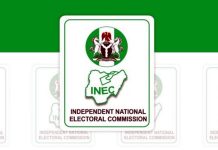Adebayo Adelabu, Nigeria’s Minister for Power, has stated that the country’s power sector generates 5,105 megawatts of electricity. He stated this on July 27, 2024, describing it as the country’s best performance in the last three years.
Adelabu made this announcement known at the first meeting of the Inter-Ministerial Power Sector Working Group in Abuja on Wednesday.
While highlighting the recent achievements and future goals for the power sector, the minister said, “Just a few days ago, on July 27, we successfully generated and transmitted 5,105 MW of power, the highest in the last three years. This is an improvement from the previous capacity of around 4,000 MW or below.
“Our target is to achieve a landmark generation and transmission of 6,000 MW by December.”
To harness the economic potential of Nigeria’s power sector, the government ministers at the meeting called for increased collaboration across various ministries and sectors.
They emphasised the sector’s crucial role in driving economic growth and industrialisation, aligning with President Bola Tinubu’s vision. Adelabu underscored the necessity of inter-ministerial collaboration to achieve these objectives.
“Power is not something that should be left alone to the Ministry of Power and its agencies. There are many supportive ministries without which we cannot achieve our mandate,” said Adelabu.
He said the power ministry is working closely with the Ministries of Environment, Water Resources and Sanitation, Budget and Planning, and Petroleum Resources, particularly the Minister of State (Gas), Ekperikpe Ekpo.
The Minister of Water Resources and Sanitation, Joseph Utsev, echoed the sentiment, stating, “The Ministry of Water Resources and the Ministry of Power are like brothers and sisters. We will do everything possible to work together to achieve the renewable energy agenda of the President and make life better for Nigerians.”
Addressing the need for sustainable energy solutions, Adelabu highlighted the role of renewable energy sources.
“We are focusing on generating power in a sustainable and environment-friendly manner. This is why we talk about renewables through solar, wind, and small dams,” he said.
The Minister of Environment, represented by Minister of State Iziaq Salako, emphasised the environmental impact of power generation and the importance of managing waste generated in the process.
“As we go ahead to develop our power sector, we are also developing a process to manage the waste that will come out,” he said.
The minister emphasized the terms of reference for the working group, which comprise activating seamless power sector liquidity and financing, providing guidance in the governance structure of electricity distribution companies, and focusing on the energy transition program to achieve net zero emissions by 2060.
The combined efforts of the group are not to only boost power generation and distribution but to also make sure that all households, businesses, and industries across the country benefit from this. The minister explained this.
This article was written by Tamaraebiju Jide, a student at Elizade University.













